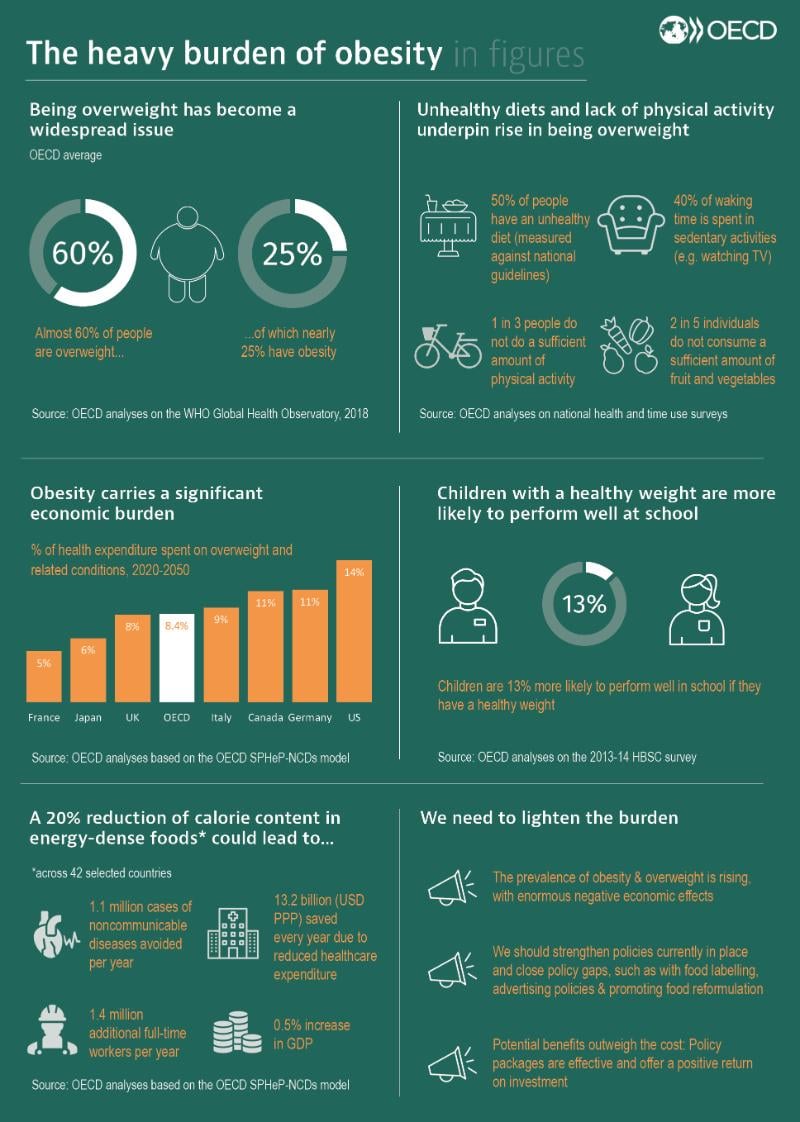I have to say that I am not afraid to ask about health policies in EU because EU is basically a market. Therefore nothing to ask. Social policy is out of the real scope of EU.However, as a regulator of the market for health has clear examples of disfunctioning. For example, implantable medical devices regulation currently applied was enacted in 1990. New regulation will be applied next year, after 30 years of regulatory vacation. Nothing to add. Taxes haven't been on vacation. Shame on Europe. By the way, you'll not find minor details like this one in the book.
02 de novembre 2019
Eurohealth
Everything you always wanted to know about European Union health policies but were afraid to ask
I have to say that I am not afraid to ask about health policies in EU because EU is basically a market. Therefore nothing to ask. Social policy is out of the real scope of EU.However, as a regulator of the market for health has clear examples of disfunctioning. For example, implantable medical devices regulation currently applied was enacted in 1990. New regulation will be applied next year, after 30 years of regulatory vacation. Nothing to add. Taxes haven't been on vacation. Shame on Europe. By the way, you'll not find minor details like this one in the book.
I have to say that I am not afraid to ask about health policies in EU because EU is basically a market. Therefore nothing to ask. Social policy is out of the real scope of EU.However, as a regulator of the market for health has clear examples of disfunctioning. For example, implantable medical devices regulation currently applied was enacted in 1990. New regulation will be applied next year, after 30 years of regulatory vacation. Nothing to add. Taxes haven't been on vacation. Shame on Europe. By the way, you'll not find minor details like this one in the book.
01 de novembre 2019
The impact of an ageing population (2)
Working Better With Age
WORKING AT OLDER AGES
Why it’s important, how it affects health, and the policy options to support health capacity for work
The message of OECD report:
WORKING AT OLDER AGES
Why it’s important, how it affects health, and the policy options to support health capacity for work
The message of OECD report:
The number of older inactive people who will need to be supported by each worker could rise by around 40% between 2018 and 2050 on average in the OECD area. This would put a brake on rising living standards as well as enormous pressure on younger generations who will be financing social protection systems. Improving employment prospects of older workers will be crucial. At the same time, taking a life-course approach will be necessary to avoid accumulation of individual disadvantages over work careers that discourage or prevent work at an older age; What can countries do to help? How can they give older people better work incentives and opportunities? This report provides a synthesis of the main challenges and policy recommendations together with a set of international best practices to foster employability, labour demand and incentives to work at an older age.And the WHO report message:
Dominant policy approaches such as increasing the statutory retirement age are often overshadowed by a lack of attention to two critical questions: firstly, are older workers in sufficiently good health to work longer? And secondly, does increasing the statutory retirement age have consequences, negative or positive, for the health of older workers?
29 d’octubre 2019
The impact of an ageing population
Sustainable health financing with an ageing population: implications of different revenue raising mechanisms and policy options
Sustainable health financing with an ageing population: Will population ageing lead to uncontrolled health expenditure growth?
Three documents from WHO Europe are available regarding financing health for an ageing population. You can skip the third, it is about predictions for 2060. This is useless as I've said many times.
However, I agree with this comment:
Sustainable health financing with an ageing population: Will population ageing lead to uncontrolled health expenditure growth?
Three documents from WHO Europe are available regarding financing health for an ageing population. You can skip the third, it is about predictions for 2060. This is useless as I've said many times.
However, I agree with this comment:
These analyses find that population ageing is not, and will not become, a major driver of growth in health expenditures. Moreover, they suggest that in countries where age demographics are changing but the size of the older population is not yet large, the costs of improving coverage and access to services for older people is likely to be manageable and now is a good time to begin investing in the health system while the population is relatively young.
However, while population ageing will not become a main driver of health expenditure growth, policy choices related to how health services are delivered, the prices paid (or negotiated) for services, medicines and technologies, and volumes of care will ultimately determine health spending by age trends.
25 d’octubre 2019
The end of social health insurance
Social Health Insurance in Europe: Basic Concepts and New Principles
During the first decade of this century, health reforms have advocated for universal health coverage in those countries with social health insurance based on contributions. This is a strong trend that needs to be evaluated. A recent article describes in detail these changes and says:
During the first decade of this century, health reforms have advocated for universal health coverage in those countries with social health insurance based on contributions. This is a strong trend that needs to be evaluated. A recent article describes in detail these changes and says:
Contrary to some expectations, SHI in Europe has further expanded toward universal coverage, with access to health care considered a right based on either direct or indirect financial contributions. Indeed, Germany is now the only example in Europe where groups of the population can opt out from the main insurance system. And, since 2009, the overall population is required to be covered by either social or private insurance.
24 d’octubre 2019
The world is fat
The Heavy Burden of Obesity – The Economics of Prevention
Almost a decade after the publication of the first OECD report on obesity, a new one has been released. This are the facts:

Almost a decade after the publication of the first OECD report on obesity, a new one has been released. This are the facts:
More than half the population is now overweight in 34 out of 36 OECD countries and almost one in four people is obese. Average rates of adult obesity in OECD countries have increased from 21% in 2010 to 24% in 2016, so an additional 50 million people are now obese. Despite a drive in the last decade to deal with increased obesity, more needs to be done amid sedentary lifestyles and an almost 20% increase in calorie supply – i.e. calories available for consumption – in the OECD over the past 50 years.So what?
The OECD identifies four categories of policies to tackle the problem and gauges the effect of three promising “policy packages” to help countries achieve greater impact and coherence in tackling the obesity epidemic. Food and menu labelling, regulation of advertising of unhealthy foods to children and the promotion of exercise, including by doctors and schools, are among the measures analysed.Most of the strategies requires a confrontation with the food industry, and governments usually try to avoid it. We'll see what happens.

16 d’octubre 2019
Gen-ethics (2)
Special Issue: The Ethics Of Human Genome Editing
The CRISPR journal has released a special issue on ethics. You'll find an article with the title "Heritable Genome Editing and the Downsides of a Global Moratorium". This is exactly the opposite argument that Françoise Baylis provides in her book. I think that it is unacceptable a recommendation that nations should "regulate HGE for safety and efficacy only and without distinguishing between therapeutic and enhancing modifications". We can't leave such decisions to scientists and practitioners. I'm really concerned about it.
The CRISPR journal has released a special issue on ethics. You'll find an article with the title "Heritable Genome Editing and the Downsides of a Global Moratorium". This is exactly the opposite argument that Françoise Baylis provides in her book. I think that it is unacceptable a recommendation that nations should "regulate HGE for safety and efficacy only and without distinguishing between therapeutic and enhancing modifications". We can't leave such decisions to scientists and practitioners. I'm really concerned about it.
10 d’octubre 2019
Gen-ethics
Altered Inheritance
CRISPR and the Ethics of Human Genome Editing
Our future belongs to all of us. Or maybe not? Maybe somebody could decide for us without noticing it?. The "decisions about the use of genetic technologies in humans are too important to be left to scientists", society has to achieve a broad consensus. Françoise Baylis in her new book sheds light on this issue. She explained his position in an article last spring and now she has published a remarkable book on ethics and genome editing. Her calls for an open and comprehensive international process to reach political, scientific, and social/ethical consensus on regulation of human genome editing have been unattended up to now. Her ultimate goal:
CRISPR and the Ethics of Human Genome Editing
Our future belongs to all of us. Or maybe not? Maybe somebody could decide for us without noticing it?. The "decisions about the use of genetic technologies in humans are too important to be left to scientists", society has to achieve a broad consensus. Françoise Baylis in her new book sheds light on this issue. She explained his position in an article last spring and now she has published a remarkable book on ethics and genome editing. Her calls for an open and comprehensive international process to reach political, scientific, and social/ethical consensus on regulation of human genome editing have been unattended up to now. Her ultimate goal:
I want to live in a world that promotes equity and justice and celebrates difference, a world where everyone matters. I want to live in a world where we embrace neighborliness, reciprocity, social solidarity, and community in pursuit of human flourishing and the common good. I want to live in a world where we value collegial as opposed to competitive relations. I don’t want to live in a world where a select, privileged few are able to inscribe their privilege in their DNA and thereby exacerbate unfair class divisions and other social injustices. For these reasons, I want for all of us to reflect on whether heritable human genome editing is a boon or a threat.I agree. An essential reading highly recommended.
Subscriure's a:
Missatges (Atom)


